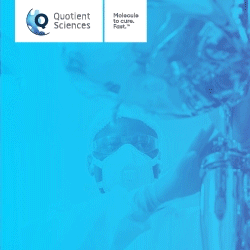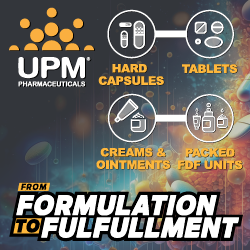Protalix BioTherapeutics Announces Phase II Clinical Trial Results
Protalix BioTherapeutics, Inc. recently announced that Phase II trial results, including new clinical data, for alidornase alfa (PRX-110) for the treatment of Cystic Fibrosis (CF) was the subject of an oral presentation at the 40th European Cystic Fibrosis Society Conference in Seville, Spain. Alidornase alfa is a plant cell-expressed, chemically-modified recombinant DNase I enzyme resistant to inhibition by actin, which the company has specifically designed to enhance the enzyme’s efficacy in CF patients.
The oral presentation, titled Phase II clinical trial results with alidornase alfa for the treatment of CF, was made by Professor Eitan Kerem, Head of the Division of Pediatrics, Children’s Hospital, Hadassah Medical Center, and principal investigator of the clinical trial as a part of a workshop titled, The airway surface, mucus and inflammation – new treatments. An archived copy of the presentation is available at www.protalix.com on the presentations tab of the investor page.
The Phase II trial is a 28-day switchover study to evaluate the safety and efficacy of alidornase alfa in CF patients previously treated with Pulmozyme (currently the only commercially available DNase I therapy for CF). Participation in the trial was preceded by a 2-week washout period from Pulmozyme before treatment with alidornase alfa via inhalation. Sixteen patients were enrolled in the study, all of whom completed the trial.
In accordance with the trial design, each participating patient was tested at three major time-points during the study for percent predicted forced expiratory volume in 1 second, or ppFEV1, a key efficacy measure. The first ppFEV1 test was performed at screening, when the patient was still being treated with Pulmozyme. The second ppFEV1 test was performed after the patient underwent a 2-week washout period from Pulmozyme but before first inhalation with alidornase alfa – the baseline – and the third ppFEV1 test was performed at the end of the 28-day study after the patient underwent daily inhalation treatments of alidornase alfa.
Final analysis of the data demonstrated a mean absolute increase in ppFEV1 of 3.4 points from baseline, and an increase in ppFEV1 of 3.3 points, when compared to measurements taken from patients at enrollment before the switch from Pulmozyme to alidornase alfa.
In addition to the ppFEV1 measurements taken during the study, an additional ppFEV1 measurement was taken 2 weeks after patients stopped treatment with alidornase alfa. For this measurement point, a mean decrease in ppFEV1 of -2.7 points was observed from the last alidornase alfa inhalation, while patients taken off Pulmozyme at the beginning of the trial for 2 weeks experienced a mean decrease in ppFEV1 of only 0.06 points for the same off treatment duration.
The following graph describes the change in ppFEV1 for all four measurement points. The results highlight the quick and sustained effect of alidornase alfa.
http://www.globenewswire.com/NewsRoom/AttachmentNg/7cce9f59-7890-4e93-9226-893878e3b42b.
Sputa available samples were analyzed for approximately half of the patients participating in the study. For these samples, a mean reduction from baseline of over 70% in DNA content and over 90% for sputa visco-elasticity was demonstrated. Additionally, a clear correlation between improvement in sputa parameters and pulmonary function was observed. Moreover, a significant increase in DNA content and sputa visco-elasticity was observed during the 2 weeks after stopping treatment with alidornase alfa, with a clear correlation between the decrease in pulmonary function and sputa parameters, as demonstrated in the following graph:
http://www.globenewswire.com/NewsRoom/AttachmentNg/fe3168a5-8016-478c-a93b-08fef2e4d610
In addition, analysis of the presence of pseudomonas aeruginosa in patients available sputum samples was evaluated using qPCR. The analysis demonstrated a reduction of over 70%, compared to baseline, in the presence of pseudomonas as a result of alidornase alfa treatment. This is in line and consistent with the previously announced in vitro study of alidornase alfa, which demonstrated a significant inhibition of pseudomonas aeruginosa, with colonies reduced by over 50%, compared to baseline. Pseudomonas are a major cause of lung infections in CF patients. Chronic pulmonary infection is a leading cause of morbidity and mortality in CF patients, despite the aggressive use of antibiotics, and pseudomonas is the most prevalent organism in the airway colonization of CF patients. Alidornase alfa was well tolerated with no serious adverse events reported, and all adverse events that occurred during the study were mild and transient in nature.
“The increase in FEV1 when switching from Pulmozyme to alidornase alfa, and the decrease in FEV1 after washout from alidornase alfa, both in absolute terms and together with a comparison to what was observed as part of the Pulmozyme washout period, are consistent and are very encouraging. In addition, the significant decrease in the presence of pseudomonas aeruginosa in patients’ sputum after treatment with alidornase alfa has the potential of extreme importance, which could translate into a reduction in respiratory tract infections and life-threatening complications in CF patients,” said Professor Eitan Kerem, a principal investigator in the clinical trial. “The data set created thus far further supports the potential of alidornase alfa becoming a gold standard treatment for all CF patients. I look forward to participating in the future development program for alidornase alfa with the goal of having the ability to offer alidornase alfa to patients dealing with this life shortening disease.”
Protalix is a biopharmaceutical company focused on the development and commercialization of recombinant therapeutic proteins expressed through its proprietary plant cell-based expression system, ProCellEx. Protalix’s unique expression system presents a proprietary method for developing recombinant proteins in a cost-effective, industrial-scale manner. Protalix’s first product manufactured by ProCellEx, taliglucerase alfa, was approved for marketing by the US FDA in May 2012 and, subsequently, by the regulatory authorities of other countries. Protalix has licensed to Pfizer Inc. the worldwide development and commercialization rights for taliglucerase alfa, excluding Brazil, where Protalix retains full rights. Protalix’s development pipeline includes the following product candidates: pegunigalsidase alfa (PRX-102), a modified version of the recombinant human alpha-GAL-A protein for the treatment of Fabry disease; PRX-106, an orally delivered anti-inflammatory treatment; alidornase alfa (PRX-110), a chemically modified DNase I for the treatment of Cystic Fibrosis; and others.
Total Page Views: 1724












